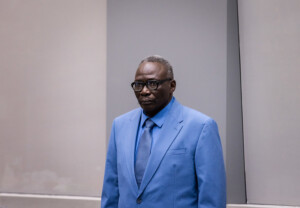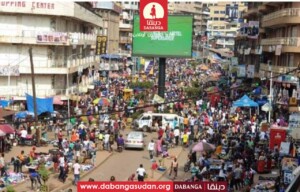Sudanese opposition leaders call on EU to support ‘new peace process’
A delegation of the Sudanese opposition on Tuesday briefed EU legislators in Strasbourg on the situation in Sudan, and called for support to realise peace in Sudan.
In an EU parliamentary hearing entitled “Sudan’s recent election and peace perspectives”, Malik Agar, chairman of the Sudan Revolutionary Front rebel alliance, and El Sadig El Mahdi, head of the National Umma Party (NUP), appealed to the EU parliamentarians to support the establishment of a new peace process and democratic reforms in the country, Sudan Tribune reported on Tuesday.
A delegation of the Sudanese opposition on Tuesday briefed EU legislators in Strasbourg on the situation in Sudan, and called for support to realise peace in Sudan.
In an EU parliamentary hearing entitled “Sudan’s recent election and peace perspectives”, Malik Agar, chairman of the Sudan Revolutionary Front rebel alliance, and El Sadig El Mahdi, head of the National Umma Party (NUP), appealed to the EU parliamentarians to support the development of a new peace process and democratic reforms in the country, Sudan Tribune reported on Tuesday.
New mandate
The NUP leader stressed that “Sudan now is a failed state”, pointing to the wars, displacement of hundreds of thousands of civilians, and the rejection by most of the Sudanese of the Khartoum regime, illustrated by the low voter turnout last April.
“We want the EU parliament to support the people of Sudan, who have been suffering for 26 years, and to back our initiative for a comprehensive and just peace, and democratisation,” he said.
Agar pointed to the need to protect civilians by stopping the wars, and guaranteeing humanitarian access to the people affected by the violence. He underscored the need to create a conducive environment, and guarantee basic freedoms, before a national dialogue can take place.
“Sudan’s peace process and national dialogue will need a new, clear mandate for the mediation. The new mandate has to include specific goals, a timeframe for moving the process forward in a meaningful manner and preventing the government’s attempts to delay the process, as well as benchmarks for a truly comprehensive national dialogue process,” the rebel leader said.
Travel ban
The French EU MP Marie-Christine Vergiat, chair of the EU block on Sudan, expressed her regret on the travel ban imposed by the Sudanese security apparatus on members of the Sudan Appeal forces. She welcomed representatives of the Sudanese Civil Society Initiative (CSI), who did succeed to reach Strasbourg from Khartoum.
Last week, three opposition leaders were barred from travelling to Strasbourg by security officers at Khartoum Airport. The passports of seven prominent members of the opposition were taken from them at the airport on Monday morning.
Sudan Appeal
Leaders of the SRF, the NUP, the National Consensus Forces (NCF, a coalition of opposition parties), and the CSI signed the Sudan Appeal, in Addis Ababa on 3 December last year.
In the two-page political communiqué, the allied opposition forces call for the ending of the civil wars in the country, the dismantling of the one-party system, and the rebuilding of Sudan based on democratic principles and equal citizenship. They agree that if a peaceful regime change cannot be achieved by a broad national dialogue, it should be enforced by a popular uprising.
While the leaders of the SRF and NUP remained abroad, the chairmen of the NCF and the CSI were detained by security officers after their return to Khartoum. They were released on 9 April, a few days before the start of the general election.
Earlier this year, the AU High-level Implementation Panel (AUHIP) invited the Sudanese government and the Sudan Appeal forces for a preparatory meeting on the national dialogue in Addis Ababa. Khartoum, however, declined to attend the meeting, planned for 29 March, saying that any meeting on the dialogue should take place within the country, and the timing was not appropriate, as the election would start two weeks later.
(Source: Sudan Tribune)











 and then
and then